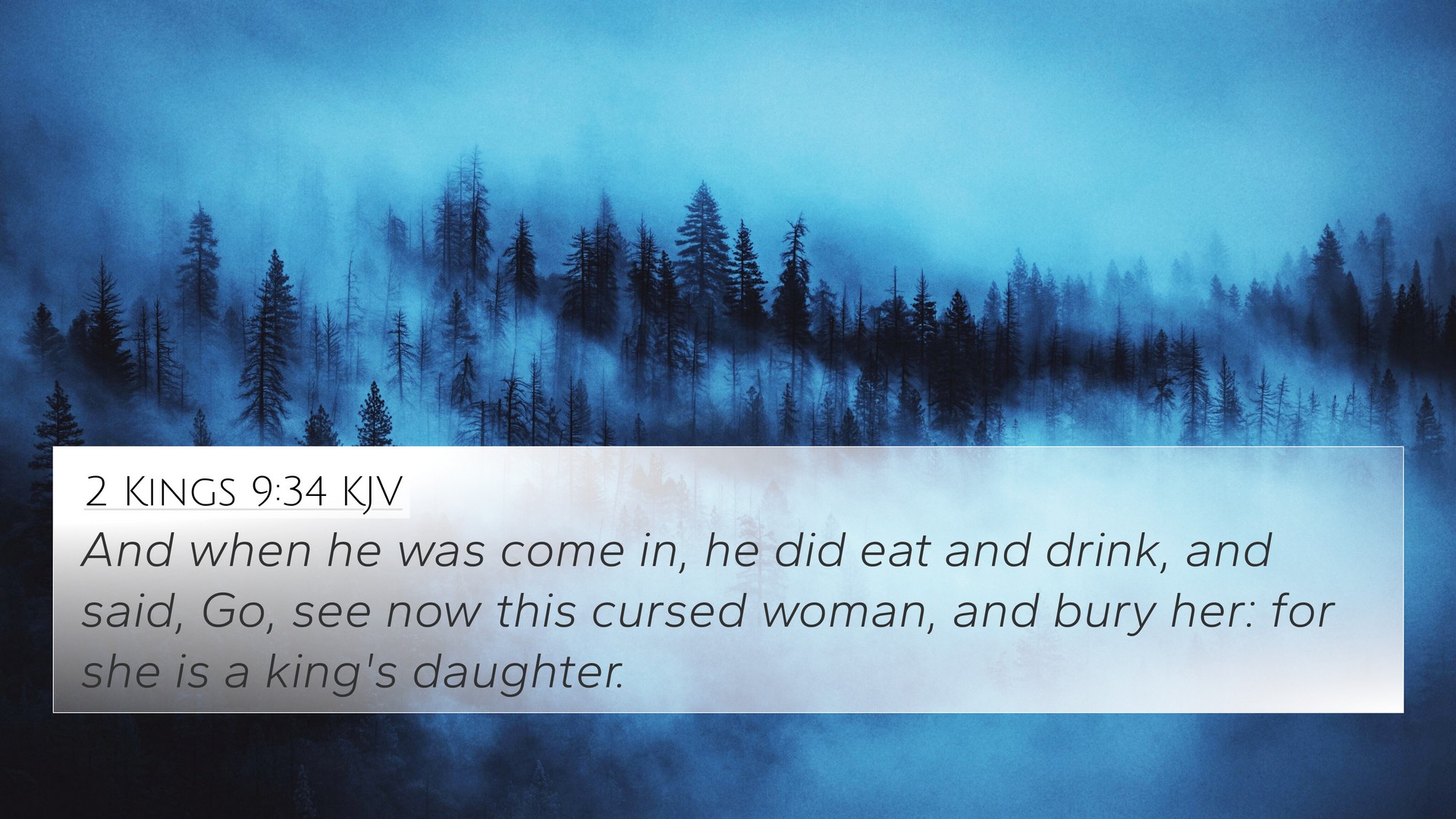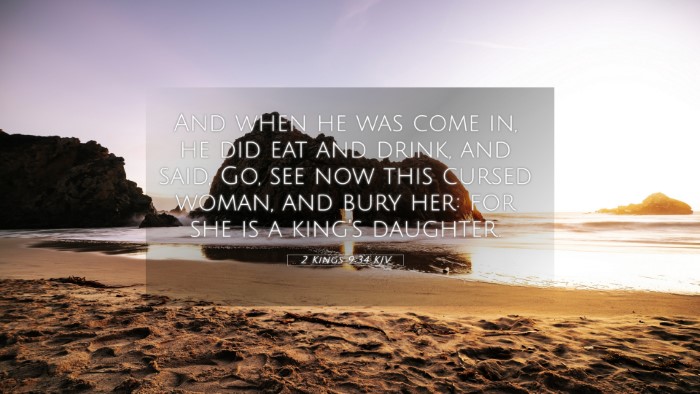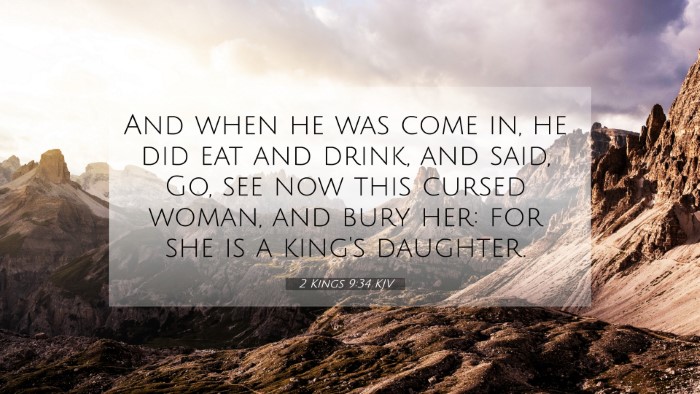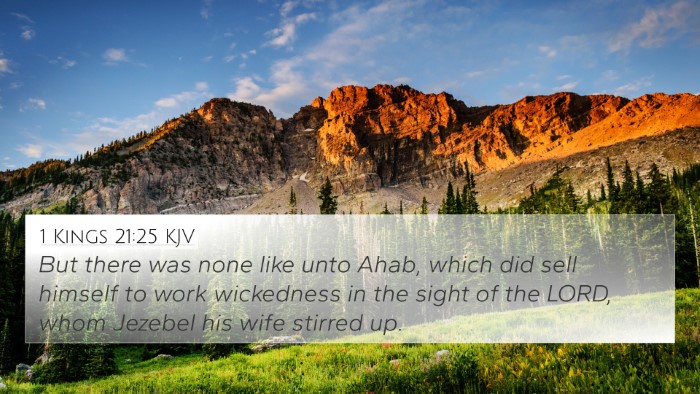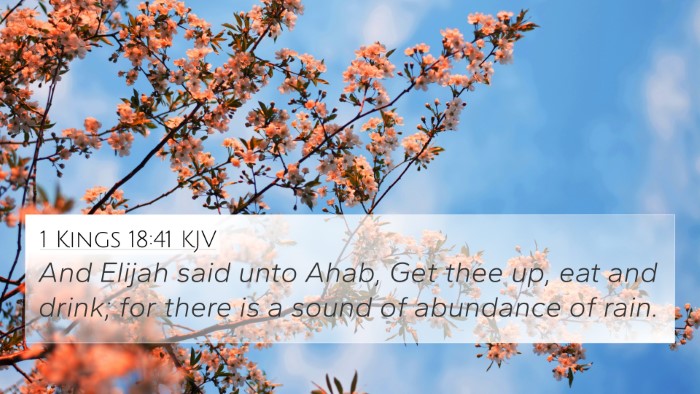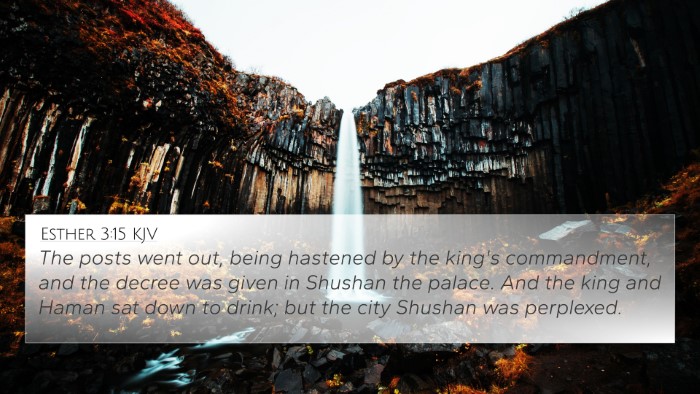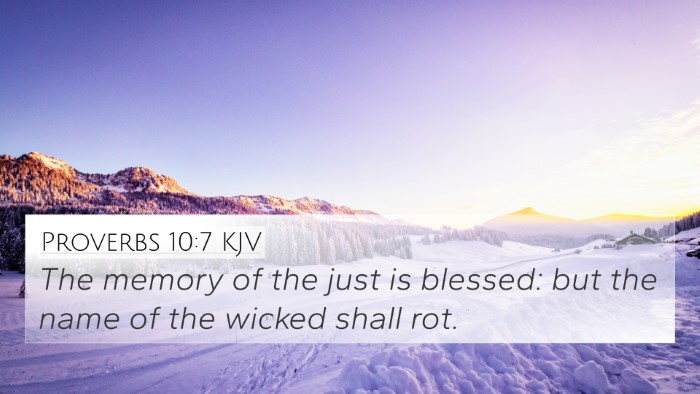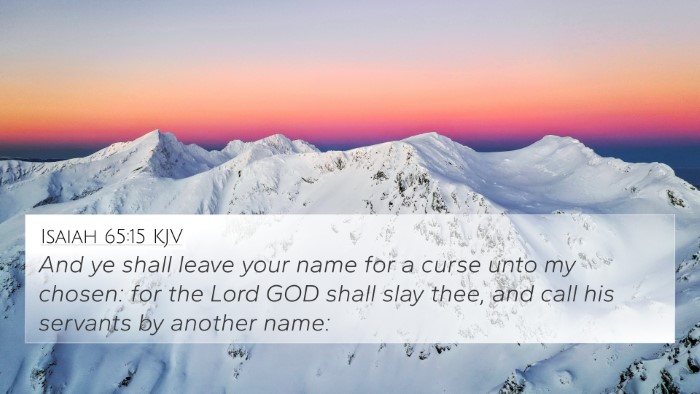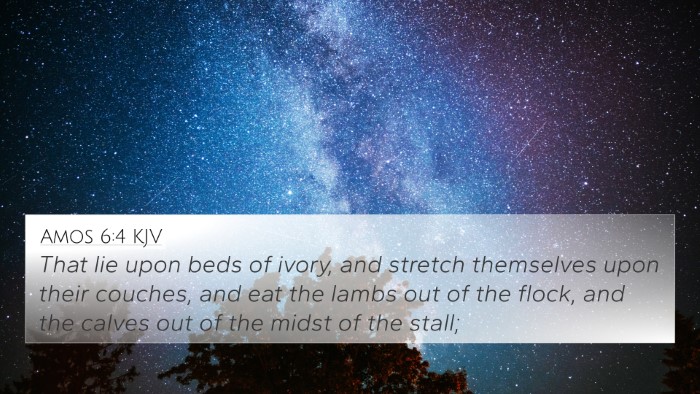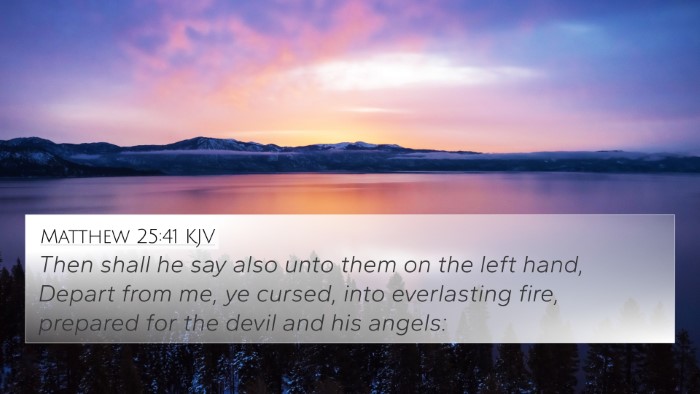Understanding 2 Kings 9:34
Verse Context: 2 Kings 9:34 reads: "And when he was come in, he did eat and drink, and said, Go, see now this cursed woman, and bury her: for she is a king's daughter." This verse occurs in a critical narrative regarding the rise of Jehu as king of Israel and the judgment against the house of Ahab.
Summary of Insights
This verse highlights the moment after Jehu has taken action in judgment against Jezebel, a symbol of wickedness and idolatry in Israel. Jehu's command reflects his ruthless determination to eliminate the remnants of Ahab's reign and to fulfill the prophetic judgment against Jezebel, as foretold by Elijah.
Commentary Insights
Matthew Henry's Commentary
Matthew Henry notes that Jehu's actions were both decisive and filled with intention. The mention of Jezebel being a "king's daughter" underscores her royal lineage, which contrasts sharply with her notorious acts of idolatry and immorality. Henry emphasizes that despite her noble birth, Jezebel's character led to her demise.
Albert Barnes' Notes
Barnes elaborates on the historical context, explaining that Jezebel's death was a fulfillment of God's prophecy against her. The act of burying her is seen as a rescinding of her dishonor. However, the phrase 'cursed woman' indicates not just her personal failures but also the spiritual consequences of her actions that affected the entire nation of Israel.
Adam Clarke's Commentary
Clarke details the emotional landscape of the moment as Jehu feasts amidst the completion of his violent task. He points out the irony of Jehu eating and drinking while he has just orchestrated a significant act of judgment. Clarke highlights the enigmatic relationship between royal power and moral obligation, where such authority often leads to corruption.
Bible Cross-References
- 1 Kings 21:23: Prophecy of judgment against Jezebel.
- 2 Kings 9:10: Jehu is anointed to destroy the house of Ahab.
- Revelation 2:20: Reference to Jezebel as a symbol of false teaching and immorality.
- 2 Kings 9:30: Jehu confronts Jezebel's death with her legacy of idolatry.
- 1 Kings 16:31: Jezebel's marriage to Ahab and her influence in Israel's idolatry.
- 2 Kings 10:6-7: Jehu's orders for the destruction of Ahab’s lineage.
- Malachi 3:5: The coming judgment against evildoers.
Thematic Connections
This verse embodies themes of judgment, royal authority, and the dichotomy between noble birth and wicked behavior. It’s essential to understand how the narrative of Jezebel fits into the broader biblical themes of judgment against sin and the sovereignty of God in reigning over Israel.
Tools for Cross-Referencing
For those exploring the connections within biblical texts, tools such as a Bible concordance and Bible cross-reference guide can be invaluable. These resources help to identify connections between Old and New Testament writings and enable deeper insights through comparative Bible verse analysis.
Further Exploration
Exploring the interconnections within the Bible can significantly enhance understanding. Engage with the Bible reference resources available for locating themes and cross-references that facilitate an enriched reading experience. This method not only clarifies the text but reveals the intricate tapestry of biblical narratives.
Conclusion
2 Kings 9:34 encapsulates a moment of fulfillments and contrasts, urging readers to reflect upon the moral implications of leadership, the consequences of idolatry, and the faithfulness of God’s judgment. Understanding such verses within their broader context fosters a deeper theological comprehension and appreciation of the Scripture.
